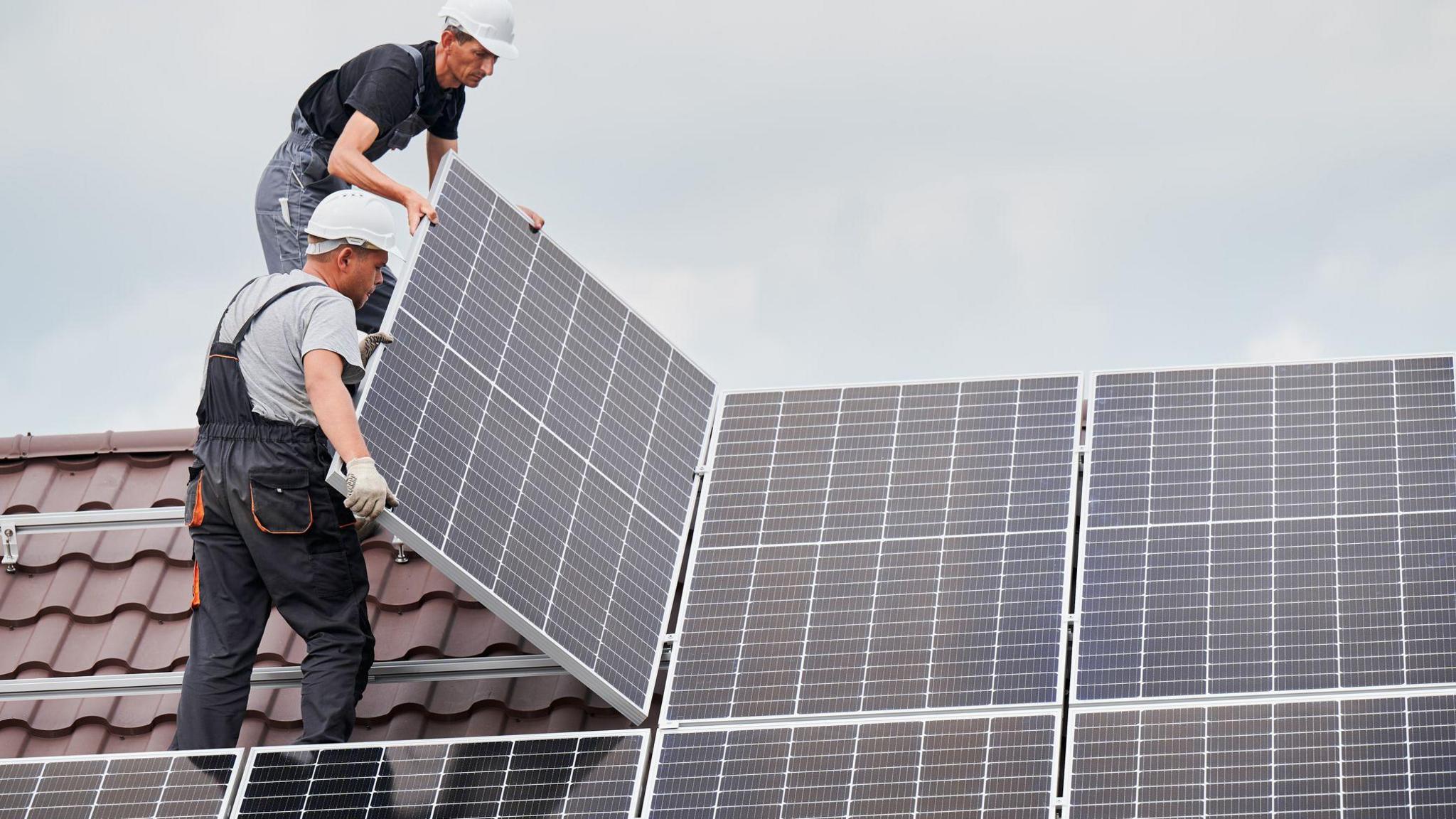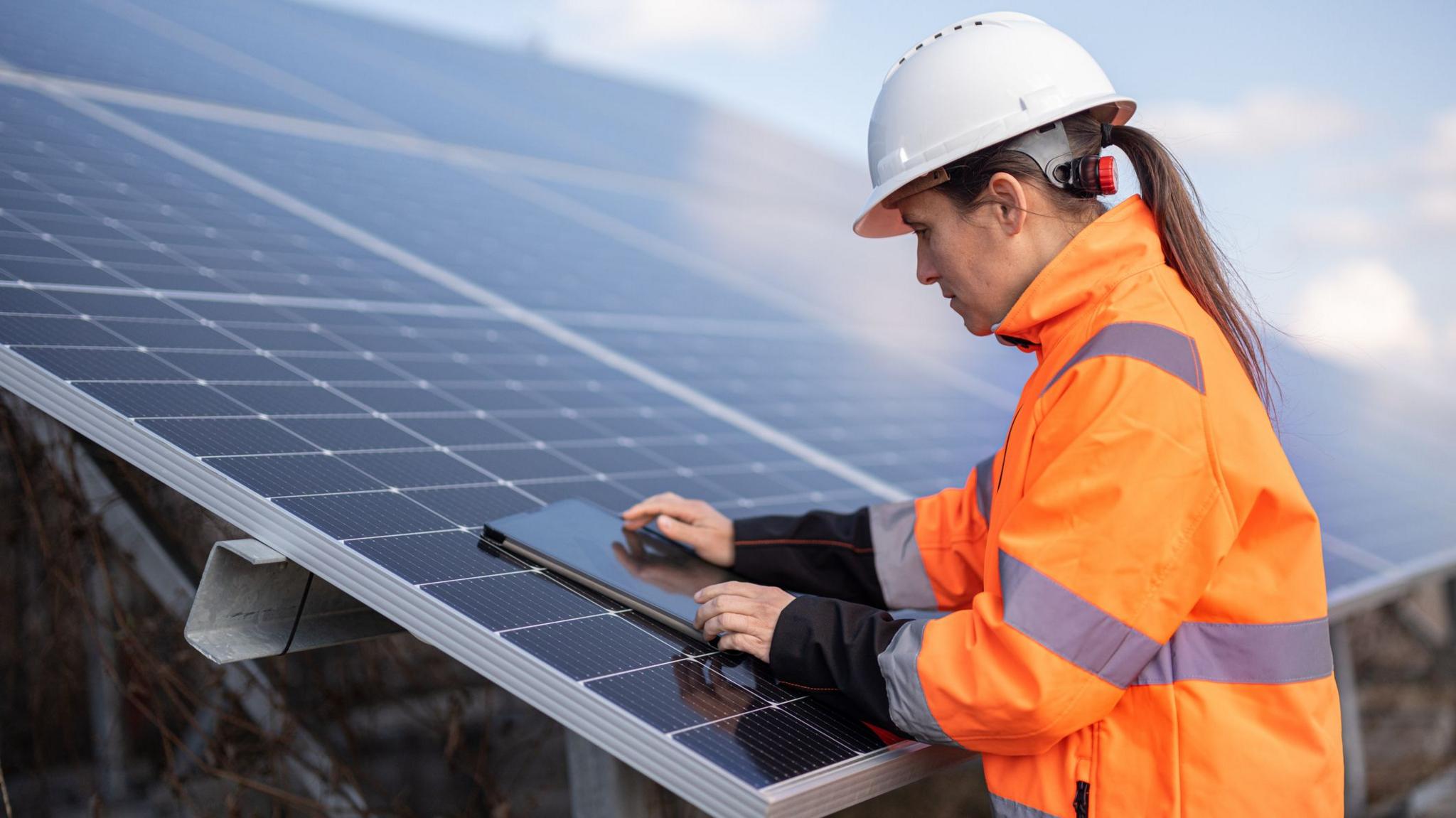School hopes solar panels will save £10,000 a year

The government believes fitting panels on schools and hospitals will enable more investment in frontline services
- Published
A school in West Yorkshire has become one of latest to join a national scheme to help cut energy bills.
The government announced in March that it was investing £180m in the installation of solar panels in schools and hospitals across the country - the first major project from Great British Energy, the government's new state-owned energy company.
Among the latest schools to get the panels is West End Academy in Hemsworth, which said it hoped to see its yearly bills fall by about £10,200.
The money saved would be able to be reinvested in front-line services including textbooks and teaching staff, the government said.
In England, about £80m is to be spent helping approximately 200 schools to install rooftop solar panels.
Meanwhile, nearly 200 NHS sites, covering a third of NHS trusts, would get a share of £100m, according to the government.
Any excess energy produced by the panels could be sold back to the grid, it said.
Energy Secretary Ed Miliband said: "Great British Energy is helping your local school or hospital save money on its bills, to be reinvested into the frontline, from textbooks to teachers to medical equipment."
All schools and hospitals under the scheme are expected to have their solar panels up and running by April.
According to the government, currently only about 20% of schools and about 10% of hospitals have solar panels installed.
Estimates suggest that, on average, NHS sites could save up to £45,000 a year and a typical school could save up to £25,000 per year - if they installed solar panels alongside over technologies installed such as batteries.
Get in touch
Tell us which stories we should cover in Yorkshire
Listen to highlights from West Yorkshire on BBC Sounds, catch up with the latest episode of Look North.
Related topics
Related internet links
- Published21 March
